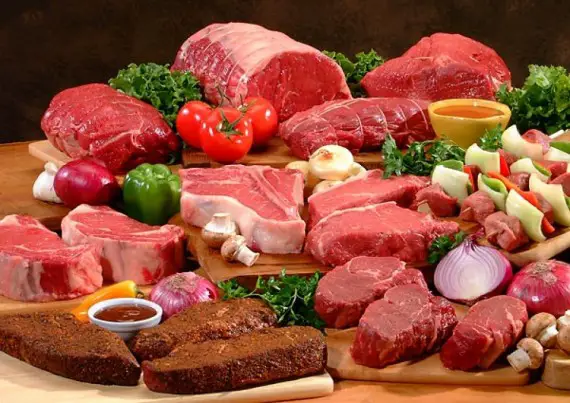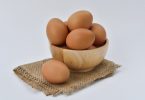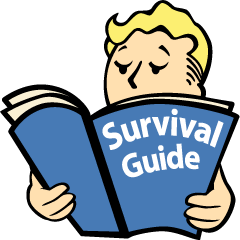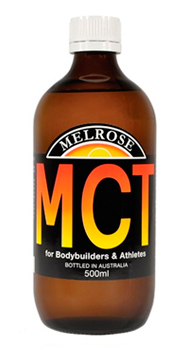If you’re here then you’re wondering “what is ketosis?”. You’ve probably heard of ketosis and ketogenic dieting as one of the best possible ways to lose weight without feeling tired, hungry or losing precious muscle mass. I’m here to answer the question of “what is ketosis?” but in a way that is easier to understand than what you might find on some other online resources.
I’m hoping that I can provide an answer to this question that’s both easy to understand and not entirely inaccurate. Please don’t hesitate to correct anything I may be wrong about in the comments below and I’ll strive to confirm your corrections and add them to this post.
What is ketosis?
Ketosis is the state in which your body is void of carbohydrates (collective term for sugars of all kinds) and as a means of survival, begins to break down fats, both from consumption and from deposits on your body, to produce ketones.
What is ketogenic dieting?
You came here wondering “what is ketosis?” but to really understand the point of ketosis we need to touch on a few extra points.
Ketogenic dieting is a diet or lifestyle that takes advantage of the bodies keto-adapted state for many purposes, primarily the ability to lower and maintain a low body fat percentage.
A ketogenic diet involves an intake of foods that are high in natural fat, adequate in proteins and low in carbohydrates like sugar and starch. This diet is proven to give tremendous results. Instead of burning more carbohydrates, the body burns more fats. This may sound like a miracle but it’s not! The secret lies in a biological process called ketosis.
What are ketones?
From “what is ketosis?” to “what are ketones?” might seem like doubling up on the same questions, but understanding the differences is important. Ketones are acids created when the body begins using fat instead of glucose for energy. In other words, a secondary fuel source designed to keep you alive while the body isn’t being fed ample amounts of sugar.
How does ketosis work?
Now that we’ve answered the question “what is ketosis?”, this section lets you have a detailed look at the process of ketosis.
In normal cases, most of us consume more carbohydrates than fats, and this is what most dieticians generally recommend, however, recent studies have confirmed that this not always the best diet. The body digests carbohydrates in a way that they are broken down into glucose which is then supplied to all our body cells and the brain. In this case, glucose acts as the energy source to our body and brain. The more carbohydrates you intake, more glucose is supplied to your blood, body and brain. High glucose levels in the blood are toxic to the body.
Now let’s consider a case when there are lesser carbohydrates in the diet and more natural fats. The liver converts fats into fatty acids and ketone bodies. These ketone bodies are naturally supplied to the brain and the rest of the body. They replace glucose for providing energy to the brain & body cells. Eating more natural fats and little carbohydrates regularly in your diet causes a higher number of ketone bodies in the blood. This process is known as ketosis. Research has shown immense benefits to the human body, as a result of ketosis.
What is keto-adaptation?
Keto-adaptation is the conversion process your body takes to change from using carbohydrate as a fuel source to using ketones. This is often referred to as the “induction phase” by ketogenic dieters. The induction phase is usually described as being a tough few weeks and puts many would-be ketogenic dieters off. I have had to go through keto-adaptation many times now as I go through the failure stages of my journey and find myself back on a high carb diet, so I know a few tips and tricks for surviving the harsh induction phase. To keep energy levels up I particular recommend 2Shredded by Beast which I reviewed earlier. Don’t let the name put you off, it’s actually a very nice product to take slowly throughout the day for a sustained release of energy.
What are the benefits of ketogenic dieting?
The most obvious benefit is weight loss. It’s effective, very effective with little to no side effects once the induction phase is complete and the body has become keto-adapted.
A ketogenic diet helps you naturally replace glucose as an energy source to your body and brain. Years of research have confirmed that this helps in treating many disorders and offers many benefits that are beneficial for the human body.
- Diabetes & PCOS – It’s a proven fact that this diet helps you reduce glucose levels in your blood. This is an extremely effective treatment for Diabetes. It proven to reverse pre-diabetes and Type 2 Diabetes. Due to this, this Diet is equally beneficial in reversing Polycystic Ovary Syndrome (PCOS)
- Weight Loss – A Ketogenic Diet is possibly the best known diet program for most people because of the fact that lesser glucose in the blood naturally reduces blood sugar and insulin levels thus balancing hormonal levels and thus maintaining weight to the right levels. Hormonal Imbalance is the single most important cause of weight gain in most people.
- Epilepsy – Ketosis is known to help treat Epilepsy. Higher number of Ketone Bodies in the blood helps in the reduction of Epileptic Seizures.
- Alzheimers– Studies have confirmed that Alzheimers is caused by lack of insulin sensitivity in the brain, and that it starts from a kind of insulin resistance in the brain cells which results in reduced ability to process glucose in the brain. Due to this reason, Ketogenic Diet has proven to not only reduce symptoms but also reverse the death of brain cells, thus treating it to a considerable extent.
What are the best foods for ketosis?
Choosing a low carb diet means you often have to refuse many nutritious foods. A lot of vegetables and fruits are not allowed on a strict keto diet. But you still have to get some vitamins and minerals to remain healthy. There are some nutritious foods which could help you to stick on a ketogenic diet and not to lose your precious health.
Salmon
First of all, salmon has a very high level of omega-3 fatty acids. Also, it contains calcium, selenium and magnesium. Salmon is a great source of B12 and vitamin D. It is high in necessary protein and tastes awesome. Salmon can be cooked in different ways. You can make soup with it or grill it. Add fatty sauces, some herbs and enjoy your life. A great sauce is a blend of avocado, horseradish and lemon! Don’t forget to serve your salmon with green vegetables.
Eggs
Eggs are a highly nutritious food. They contain plenty of protein and fat. Eggs are rich in vitamins A, B and D. Particularly, eggs yolks are one of the biggest sources of choline, B12 and vitamin B2, which are very important in metabolic energy production. I have to mention that almost all the eggs nutrients are contained within the yolk. It is very rich in such minerals like selenium, zeaxanthin and lutein, which by the way protect our eyes.
A huge benefit is that you can cook eggs for breakfast in various ways. It can be omelet with bacon, or cheese and herbs. Boiled eggs served with green vegetables. Frittatas and quiches could also make your “keto life” more fun.
Berries
Berries look nice, they are rich in vitamins, minerals and they are very delicious. If you are out of the season, frozen berries are just fine. Berries are sweet and this is what you miss in a keto diet, and they contain a lot of vitamin C. For example, a small cup of strawberries has your daily requirement of vitamin C. If you choose raspberries, 3 cups of it provides our daily needs in niacin. My favorite berries, blackberries, are high in manganese and fiber.
Cook fatty products with greek yoghurt. Make interesting low carb desserts and dress them all with berries. Why not make a ketogenic diet fun?
How to avoid carbohydrates in order for your body to enter ketosis?
When we think about being on a diet, the first painful picture that appears in our mind is the one of having to avoid carbohydrates. Usually they make a big part of our daily ration. We used to have breakfast with oatmeal or buckwheat; some even pamper themselves with French croissants and sweet coffee. The same thing happens with lunch and dinner. Our worries are real. But, there is always a way out. And today, you will learn how to avoid carbohydrates the smart way.
So, a very smart and interesting way to make your favorite sandwich without bread is to roll your food into lettuce leaves. It could be turkey with tomatoes and cheese. Or if you prefer spicy Italian food it could be mushrooms, garlic, mascarpone cheese, coriander and chili pepper. I have no doubt that you will be satisfied with this interesting replacement of carbs.
Also, if your weight is almost at the level you want it to be, you can generally afford to consume a little more carbs than usual. But you still have to avoid “bad” carbohydrates. The smart way to do it is to choose organic products instead of those made from God-only-knows-what.
To replace dessert with more nutritious carbohydrates, you can try making smoothies. Usually they contain milk; I would recommend you to choose coconut milk. Different berries, for example blueberries or strawberries. Almonds and chocolate-flavored protein powder are always welcome. And you will never feel a lack of sweet taste.
If you miss sweet drinks such as Coke and Pepsi or any others, which contain more carbohydrates than you can even imagine, there is a smart way to avoid the evil. It is called compote. To get the best taste in compote I would recommend using dried fruit, such as apples and pears. If you add a small piece of lemon, you will bring the compote to a nice sour taste.
Now you can see it is very easy and fun to avoid carbohydrates. It will make you slimmer and way healthier.






